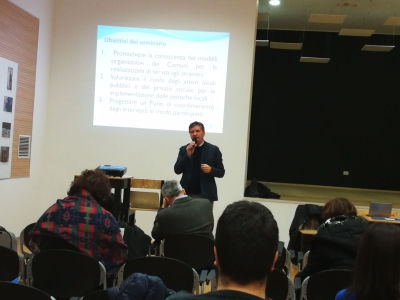(di Giovanni Moro)
The “Lab” of European Citizenship
Democratic deficit, governance approach and non-standard citizenship
1. The challenge of European citizenship
Today, the most important concern of European Union leaders and public opinion is citizens' lack of trust in Union institutions. In 2001, the Irish have rejected through a referendum the Treaty of Nice. A treaty that had introduced some institutional reforms aimed at facilitating the admission of other countries to the European Union. An action that is without doubt a warning: the consensus of citizens to the European Union cannot be taken for granted.
More than one year before the Irish referendum, the President of the European Commission, Romano Prodi, clearly warned about this risk, stressing the need to start a deep reform of the EU.
“Our citizens are not happy with the way things are done at European level. It is not just the Commission’s recent performance they criticise: they feel remote from all European institutions, and are sceptical that we can deliver the kind of society they want. They are rightly calling for a much greater say in shaping the New Europe. The challenge is therefore not simply to reform the Commission … It is not simply to make all the institutions work more effectively … The challenge is to radically rethink the way we do Europe. To re-shape Europe. To devise a completely new form of governance for the world of tomorrow. (…) The enlarged Europe will certainly need strong institutions. But they must be democratically legitimate institutions that operate in a transparent and accountable way and enjoy the full confidence of the citizens. People want a much more participatory, “hands-on” democracy. They will not support the European project unless they are fully involved in setting goals, making policy and evaluating progress. And they are right”.
European citizenship, as established in the Maastricht Treaty in 1992, has therefore become of crucial importance in order to fill the gap between the European Union and its citizens and to encompass the single market inside a strong democratic constitutional framework.
Moreover, it is necessary to keep in mind that the building, ex novo, of a supranational citizenship is an extraordinary event in the life of contemporary democracies. Thus, European citizenship can be likened to a laboratory experiment. This experiment concerns the interaction of different phenomena and processes:
- a top down juridical definition of rules,
- a bottom up sharing of values and habits, and
- a daily system of political, cultural, institutional relations between national civil societies and the European institutions, especially in facing public problems.
Nevertheless, European citizenship is neither a clear nor an obvious matter. An attempt to clarify this matter appears important not only from a scientific point of view but also from a political one. The increase in the role of the European Union in the global context and in the implementation of its enlargement process will succeed only if a high level of trust is assured in European civil society 2 . It is clear that trust and citizenship are strictly linked: effective citizenship cannot exist without trust, but at the same time a strong and shared sense of citizenship can reinforce social trust.




